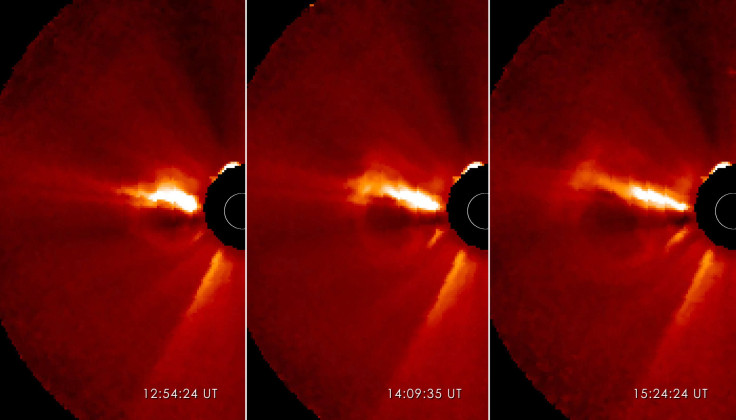Sun Eruption Could Lead To Pretty Northern Lights Display

A massive sun eruption has sent solar particles hurtling toward Earth. While not harmful, these particles could cause a geomagnetic storm and enhance the Northern Lights display during the week.
On Sunday, NASA’s Solar Terrestrial Relations Observatory (STEREO) captured a solar eruption that sent a coronal mass ejection heading toward Earth. According to NASA, the CME exited the sun at 275 miles per second, which is a normal speed for CME, although NASA notes some have been faster. The photos captured by STEREO were released by NASA on Monday.
The CME could in theory cause Earth’s communication systems to malfunction and shut down electrical grids through a powerful geomagnetic storm. A CME can set off a geomagnetic storm if it interacts with the magnetosphere for a prolonged time.
But NASA does not believe this CME will affect satellite-based communication systems or electrical grids. The CME is traveling at a speed that would only cause a weak geomagnetic storm. What the CME could do is create some enhanced aurora displays.
Geomagnetic storms can enhance aurorae around the northern and southern poles, according to NASA. The CME is projected to reach Earth within three days, which could enhance the Aurora Borealis, the Northern Lights, and Aurora Australis, the Southern Lights.
The sun is in an active part of its 11-year weather cycle, reports Space.com, leading to more solar flares and CME.
Two particular areas of the sun, labeled Active Region 11652 and Active Region 11654 by the National Oceanic and Atmospheric Administration, have displayed increased activity lately. Since Jan. 10, these two regions have been the source of four weak, classified M-class, solar flares. M-class flares are rather weak but could still affect Earth, notes NASA. X-class solar flares are the most powerful type of flares, notes Space.com, and can cause extended radio blackouts. The recent M-class solar flares caused some minor and brief radio blackouts, notes NASA.
© Copyright IBTimes 2024. All rights reserved.






















